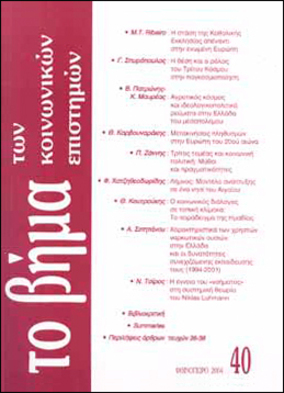The use of virtual reality technologies in neuropsychological studies
Part of : Το βήμα των κοινωνικών επιστημών ; Vol.ΙΔ, No.54, 2009, pages 203-228
Issue:
Pages:
203-228
Author:
Abstract:
This paper reviews studies that demonstrate the utility of Virtual Reality (VR) in psychology. It starts with an outline of the types of VR technologies and related issues, followed by a description of a number of VR tests developed for assessment and rehabilitation purposes. It then emphasizes one of the main assets of VR simulated environments, namely that they may feature high ecological validity without sacrificing experimental control and, in this way, VR may improve the ecological validity of neuropsychological investigations that look, in particular, at executive functioning. It is precisely within this context that recent work is reviewed: a set of computer-based tasks that allow carefully controlled, simulated environments, and where participants (a group of patient with frontal lobe lesions and a control group) are faced with ‘real world’ situations. The results show marked group differences; importantly concerning the extent to which non-VR assessment may indicate a sparing of executive abilities, it can be assumed that VR is more sensitive in identifying executive deficits in these patients. It appears that there is great scope in psychology for validating VR tests as clinical and research tools.
Subject:
Subject (LC):
Keywords:
virtual reality, executive function, ecological validity
Notes:
Περιέχει γραφήματα και βιβλιογραφία, Το άρθρο περιέχεται στο ειδικό τεύχος αφιέρωμα: η προσφορά της νευροψυχολογίας στην εκπαίδευση




